Scrapbook 1
Seymour Nussenbaum: √Ę‚ā¨‚ÄĻMy Life in the Army 3
Scrapbook 1: December 1942 - December 1944
"The next morning we hitchhiked out to the Wonder Cave in the Cumberland Mountains. We went through the cave and were duly impressed. We hitchhiked back to camp later that night."
- from Seymour Nussenbaum scrapbook “√Ę‚ā¨‚ÄĻMy Life in the Army”
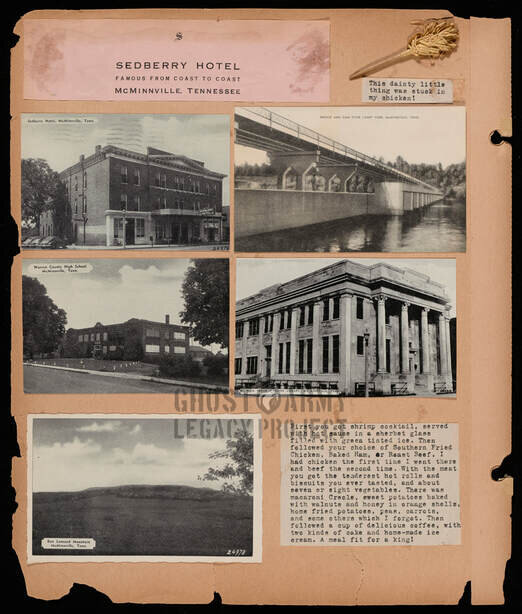
"March 11 was the first time I visited McMinnville. I heard of the place from some of the boys who had been there before and who told me not to miss it. ... We got a room at the Hotel Sedberry. The only interesting thing about McMinnville was the wonderful meal served at the Sedberry. The town was nice, in a quiet way, but the meal --- ah!"
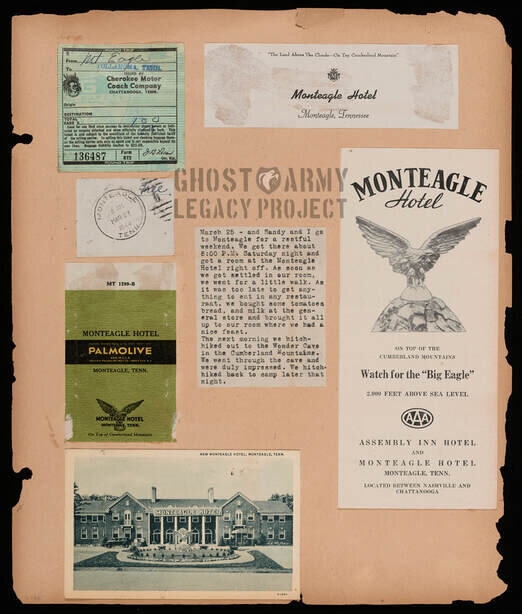
"The next morning we hitchhiked out to the Wonder Cave in the Cumberland Mountains. We went through the cave and were duly impressed. We hitchhiked back to camp later that night."
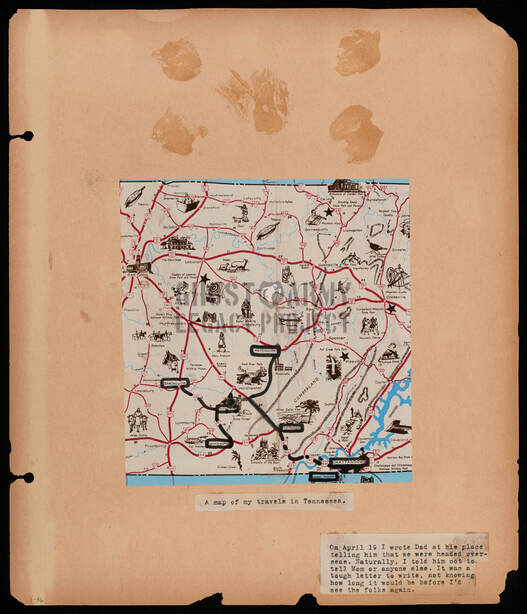
The map shows Nussenbaum's travels through Tennessee while he was stationed in Camp Forrest. "On April 19 I wrote Dad at his place telling him that we were headed overseas. Naturally, I told him not to tell Mom or anyone else. It was a tough letter to write, not knowing how long it would be before I'd see the folks again."
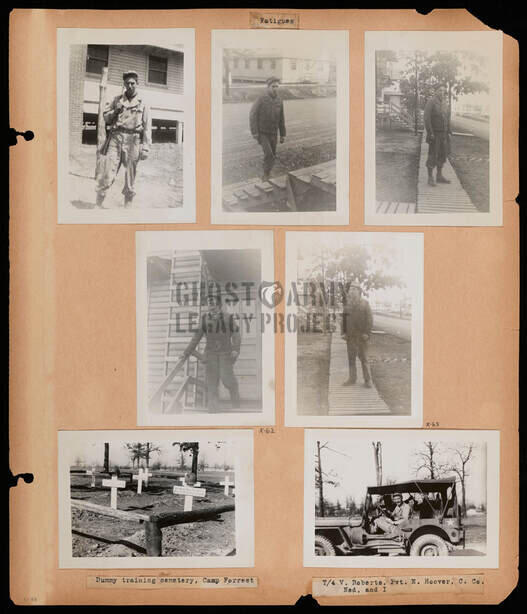
Nussenbaum included several pages of snapshot portraits, including this page showing the fatigues and the dummy training cemetery at Camp Forrest, Tennessee.
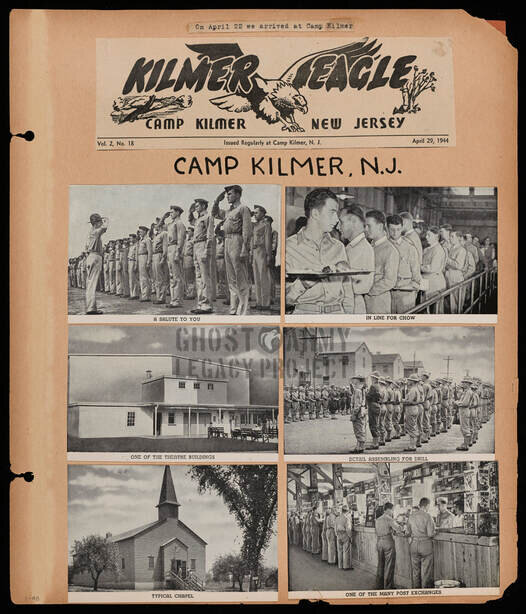
"On April 20, after a hectic week of turning in equipment and packing and crating other equipment for overseas shipment, we left Camp Forrest for Camp Kilmer, a debarkation center for overseas shipment."
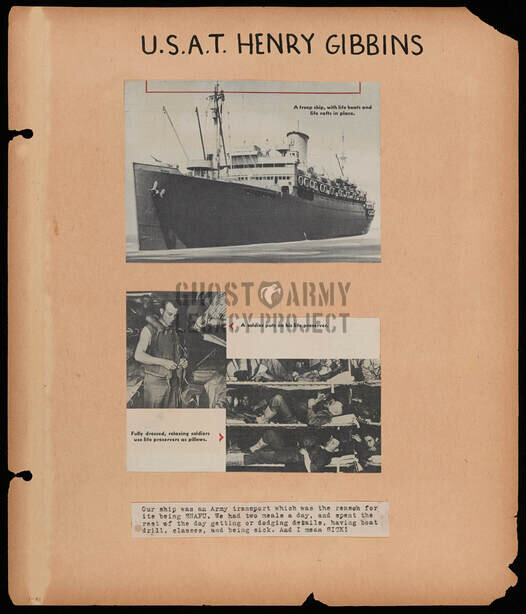
"On the evening of May 2, 1944 we boarded the U.S.A.T. Henry Gibbons in New York Harbor after a trip to Hoboken and over the Hudson by Ferry. Early the next morning, we sailed. Nobody was allowed on deck, so we left in secrecy, not even getting a last look at Miss Liberty."
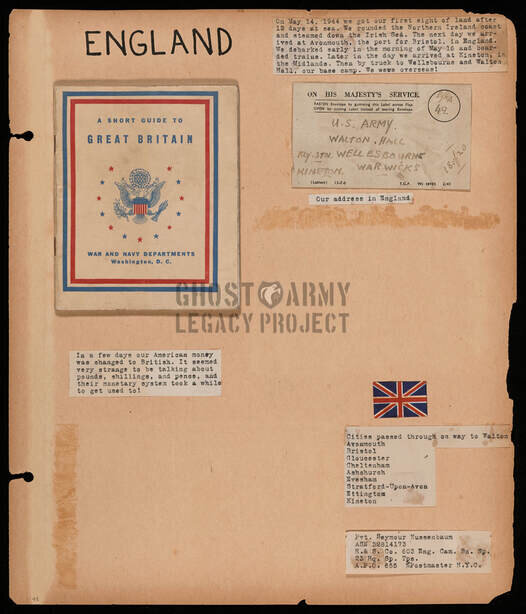
On May 14, 1944 we got our first sight of land after 12 days at sea. We rounded the Northern Ireland coast and steamed down the Irish Sea. The next day we arrived at Avonmouth, the port for Bristol, in England. ... We were overseas!"
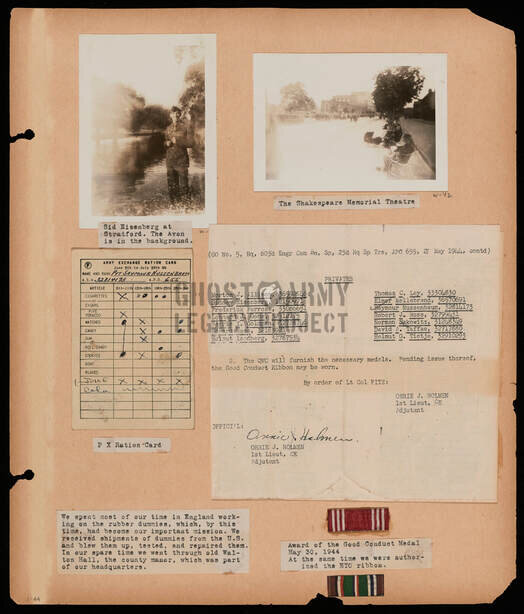
"We spent most of our time in England working on the rubber dummies, which, by this time, had become our important mission. We received shipments of dummies from the U.S. and blew them up, tested, and repaired them."
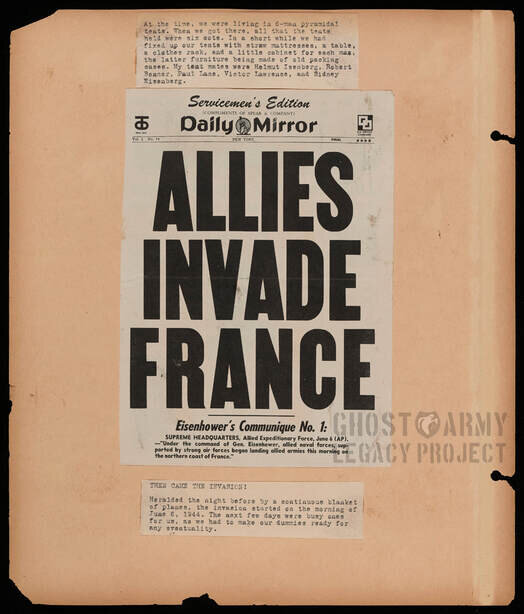
"THEN CAME THE INVASION! Heralded the night before by a continuous blanket of plants the invasion started on the morning of June 6, 1944. The next few days were busy ones for us, as we had to make our dummies ready for any eventuality."
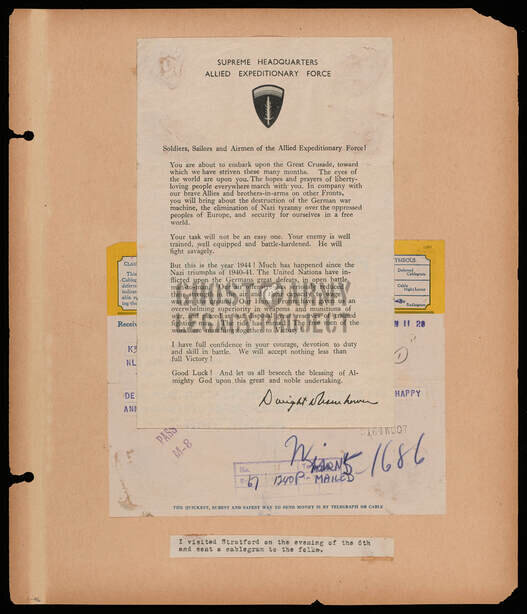
A letter from Dwight Eisenhower encouraged the soldiers to approach their tasks with courage and determination.